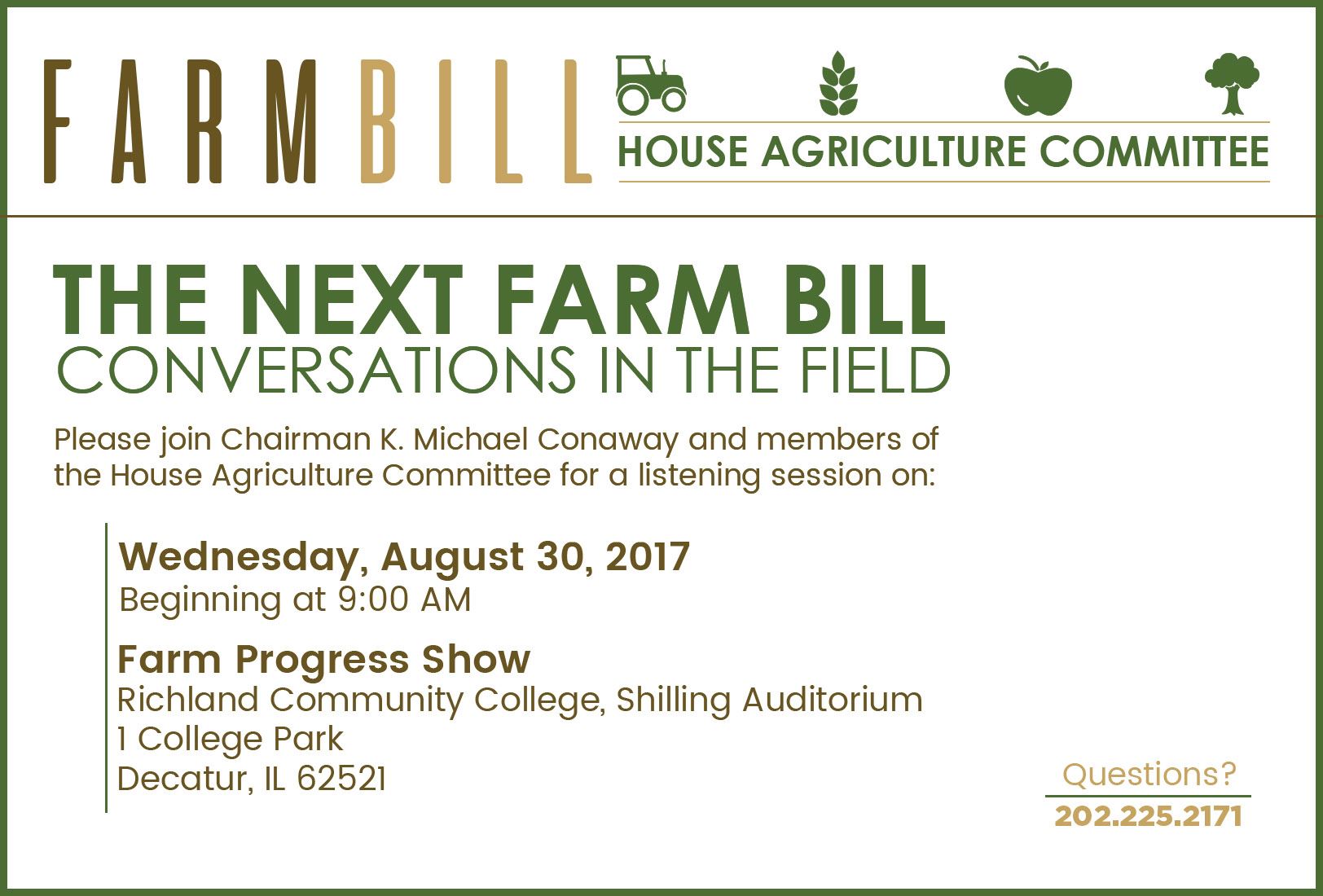
Instructions on how to speak at the listening session:
Doors will open at 8:00am. Upon arrival there will be a sign in sheet that everyone who attends will fill out. There will also be cards that can be filled out for those attendees wishing to offer comments. The card has several topics listed so attendees can indicate what they would like to offer their perspective on. Please limit comments to those issue areas under the Agriculture Committee’s jurisdiction.
Committee staff will collect all of the cards and organize them so that the Members will get to hear from a wide variety of stakeholders on all topics. The Members of the Committee want to hear from all of those impacted by farm policy, including rank and file producers in addition to the representatives of the commodity groups.
Following the opening remarks of the Chairman, a moderator will begin calling people to the microphones to offer their comments. Attendees will have up to 2 minutes to speak, and are encouraged to make the most of that time to deliver their key messages. Members may ask a follow up question, but for the most part they are there to hear the comments of attendees and listen to the input provided.
Committee staff will attempt to make sure that all topics and organizations will be represented by those wishing to speak, however time limitations may prevent some attendees from having a chance to speak. An email address is set up for people to submit any additional comments the Members did not get an opportunity to hear, or that speakers would like to supplement their statements with – that email address will be provided on site.
General Notes:
Admittance to Farm Progress Show is NOT required to attend.
Suggested Driving instructions to closest Farm Progress Show Parking Lot are below
Coming from North off Interstate
- Exit I-72 at exit 144
- turn left onto Rte 48 (heading south)
- 2nd stop light turn left onto Brush College Rd.
- At stop light (Mound Rd.) turn Left
- Take 1st right onto President Howard Brown Blvd.
- Park as directed in Farm Progress Show parking area (to south end of lot)
- Walk back to President Howard Brown Blvd
- Walk south towards Richland Community College
- Event held in Schilling Center
Coming in from South through town:
- At stop light of Reas Bridge Road/Hubbard Ave. turn right (east)
- At first opportunity turn left (north) into Richland Community College
- Follow the ring road around the college to 2nd right (Pres. Howard Brown Blvd), turn right (north)
- Park as directed FPS parking area (to south end of lot)
- Walk back to President Howard Brown Blvd
- Walk south towards College
- Event held in Schilling Center
